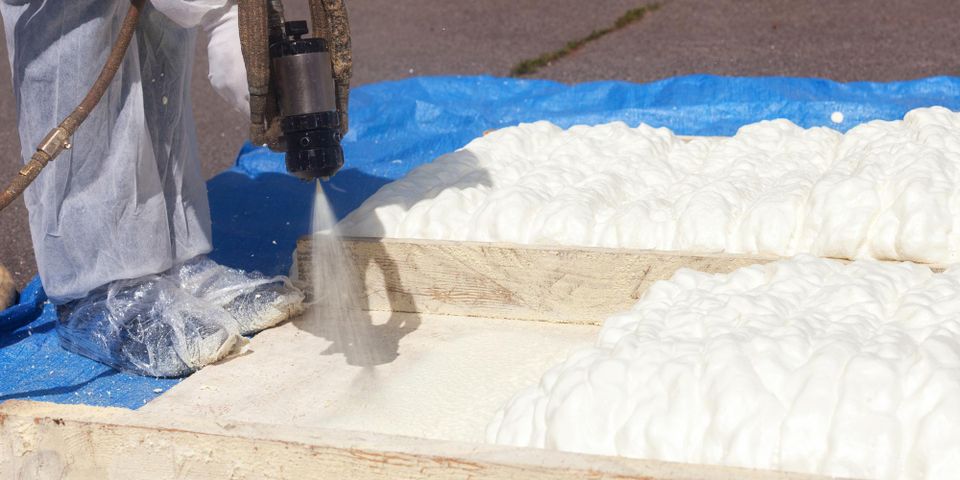
Whether you live in a warm or cool climate, ensure your home will protect you from outside weather. For top resistance and protection from intruding winds and drafts, choose spray foam insulation. But what is it, and why does it work so well? Here are the most common questions about the material.
What You Need to Know About Spray Foam Insulation
What is spray foam insulation?
Spray foam insulation creates a physical barrier inside a building’s walls to protect against air drafts and energy loss. Homes with spray foam stay cooler on hot days and warmer on cool days because the outside air cannot intrude, and the interior air stays put.
The foam insulation also disallows any humidity or moisture from getting trapped in walls and ceilings, a problem that could lead to long-term, unseen moisture damage.
How long does it take to cure?
 Foam insulation takes about 10 seconds to grow to about 100 times its starting volume. It then takes up to 24 hours to fully cure. Let the foam ventilate—do not cover it up—until after the 24-hour mark.
Foam insulation takes about 10 seconds to grow to about 100 times its starting volume. It then takes up to 24 hours to fully cure. Let the foam ventilate—do not cover it up—until after the 24-hour mark.
How environmentally friendly is spray foam insulation?
Spray foam insulation is environmentally friendly because it seals homes to reduce energy usage. When fully trained professionals install your insulation, they will recommend you leave the house for one to two days. Spray foam is not toxic after setting but emits hazardous fumes during the first 24-48 hours. Once it cures, it does not emit any other dangerous gases.
What is the difference between open- and closed-cell foam?
Closed-cell foam is extremely dense, only expanding up to 30 times its original volume. The cells in the foam tightly huddle together, restricting any form of intruding air. Your refrigerator and freezer might use closed-cell foam to completely seal in the cold and protect your food. Homes surrounded with humid or damp conditions benefit from closed-cell foam because the insulation resists any water vapor intrusion.
Open-cell foam is less dense than closed-cell. This soft foam insulation expands up to 150 times its original volume. The cells in the foam are considered to be broken, which means the material more effectively expands and contracts with weather fluctuations to ensure long-term air sealing. This type of insulation expertly seals in air and sound and works well for homes in warm climates.
If you’re ready to install spray foam insulation or want to learn more about it for your residential, commercial, or industrial project, turn to the qualified team at Priority 1 Construction Service in Cincinnati, OH. Proudly serving clients throughout the Tri-State area for more than 20 years, the company provides a variety of solutions, including mold abatement and asbestos removal. Visit the website for more information, and call (513) 922-0203 to schedule an appointment.
About the Business
(1 reviews)
Have a question? Ask the experts!
Send your question

